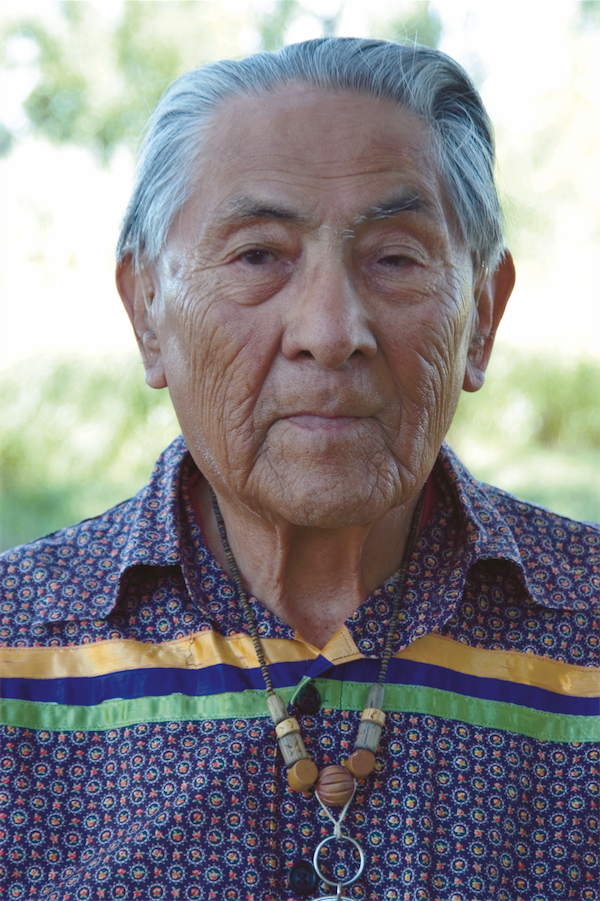
This week we honor Crow War Chief Joseph Medicine Crow for his strength, spirit, and his life’s work as a historian, which have left a lasting imprint on the preservation of Crow culture and history.
Medicine Crow, known to many as Dakaákbaako “High Bird”, found himself at the forefront of many battles during his lifetime. As a soldier in World War II, he performed, without intending to, the four battlefield deeds necessary to make him the last Crow War Chief. As reported by Eric Whitney for Montana Public Radio, Joe wore war paint in battle beneath his uniform and a sacred feather beneath his helmet. While some of his notable deeds during the war included stealing enemy horses, perhaps his greatest were his acts of mercy, such as sparing a Nazi soldier he could have killed. While helping to take over a German-held village, he literally ran into a German soldier, knocking him down. He quickly disarmed the soldier, taking away his rifle, but allowed him to live. In this act, Joe also completed the first task necessary to become a Crow War Chief: touching an enemy without killing him.
His next battle was the struggle to preserve and share the stories of our culture and people. The first of the tribe to earn a master’s degree (and later several honorary doctorates), Joseph returned from the war to become the official historian of Apsáalooke Nation. Herman Viola, curator emeritus at the Smithsonian Institution’s National Museum of American Indians, recalls, “With his prodigious memory, Medicine Crow could accurately recall decades later the names, dates, and exploits from the oral history he was exposed to as a child.” One such memory made Joe a living link to the 1876 Battle of the Little Bighorn. His grandfather was a scout for General George Armstrong Custer and, as a historian, Joseph recorded the testimony of the battle which his grandfather related to him. For shaping a fuller history of America, the White House honored Chief Medicine Crow with the Presidential Medal of Freedom, the nation’s highest civilian honor, in 2009.
Many people also know that in addition to being a historian, Joseph was an enthusiastic supporter of the Crow language and was a driving force in creating the Crow Language Consortium. During May 2012, he attended meetings with school board members, tribal officials, and representatives from various school districts and Little Big Horn College to discuss the creation of an organization that would work to carry on the Crow language. The immediate result of the trip was the formation of the Crow Language Consortium, now leading the revitalization of Apsáalooke.
Dakaákbaako continued to follow the progress of the Consortium throughout the remainder of his life and was delighted to receive the first set of Bíiluukaalilaah! Speak Crow! language textbooks. We are honored for the opportunity to have worked with Joseph to carry on the Crow language, and are humbled by his contributions to the tribe.
Joe passed away on Sunday, April 3 in Billings, Montana at the remarkable age of 102. On Joe’s memory, Darren Old Coyote expressed a commonly felt sentiment: “Joe was a true American hero. He was a great man in two worlds.”
